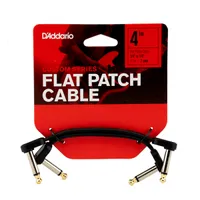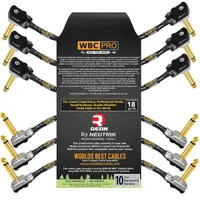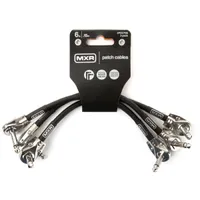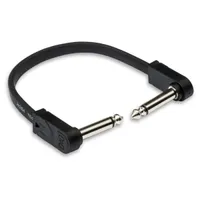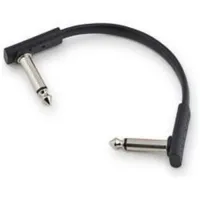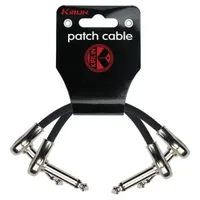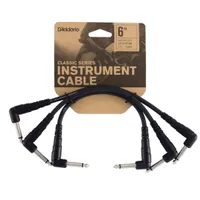Best patch cables 2026: tidy up your pedalboard with my pick of the best patch leads
I put 14 different patch cables to the test to find out which is the perfect match for your pedalboard
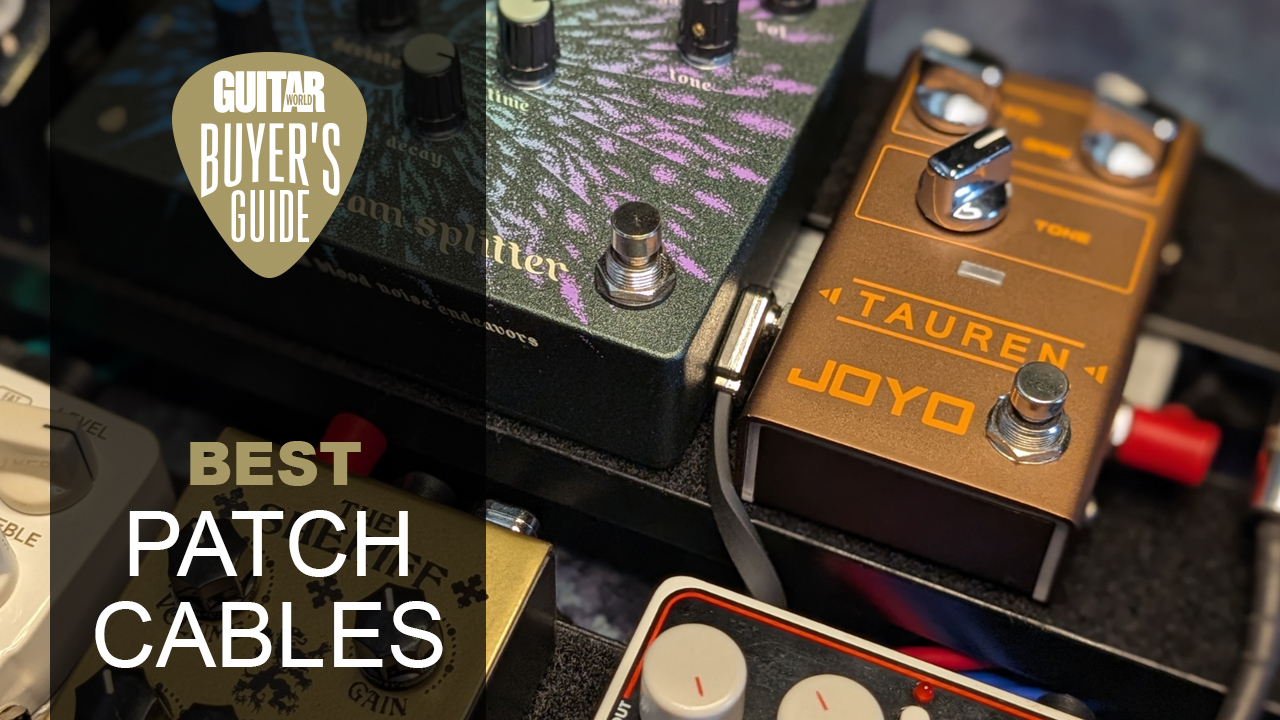
All the latest guitar news, interviews, lessons, reviews, deals and more, direct to your inbox!
You are now subscribed
Your newsletter sign-up was successful
When it comes to patch cables, I honestly can’t count the number of times people have asked me if they have any effect on your tone. I see it on forums all over the web too, so, to finally put this question to bed, I gathered 14 of the best patch cables from all across the world of guitar to find out how much of a difference they really make.
Do you know what I found? There’s basically no difference when buying from a major brand. Every patch cable I tested did a fine job of transferring tone from my electric guitar to my guitar amp. Yes, you can get tone loss when putting together a pedalboard with lots of different pedals, but this is easily remedied by using a buffer or loop switcher. Cheap, off-brand patch cables will also add noise to your tone, so be aware of these as well.
Since I’ve so quickly gotten an answer to that ever-pervasive question, what’s the point of testing patch cables out now? Well, having built and gigged countless pedalboards over a 20+ year playing career, I can tell you from personal experience that multiple onstage failures are what keep me up at night. That means the quality of the build and the number of options a patch cable offers are the defining factors of what makes a cable great.
If you want the best overall patch cable, I’d pick the Ernie Ball Flat Ribbons. They’re relatively inexpensive, have a very compact connector, and ultra-solid durability, making them a brilliant all-rounder. Coming in a very close second was the EBS Flat Patch, which is more compact but has slightly less in the options department. I still highly recommend them for space saving, though.

"I've been gigging in bands for over 20 years now, and in that time I've built plenty of pedalboards. I've felt the ignominy of patch cables failing while on stage, so I'm now very demanding of my gear - it has to be able to withstand the rigors of the road. I've applied my real-world experience to all of the patch cables in this guide, so you can trust that the recommendations I make will perform for you too."
My top picks
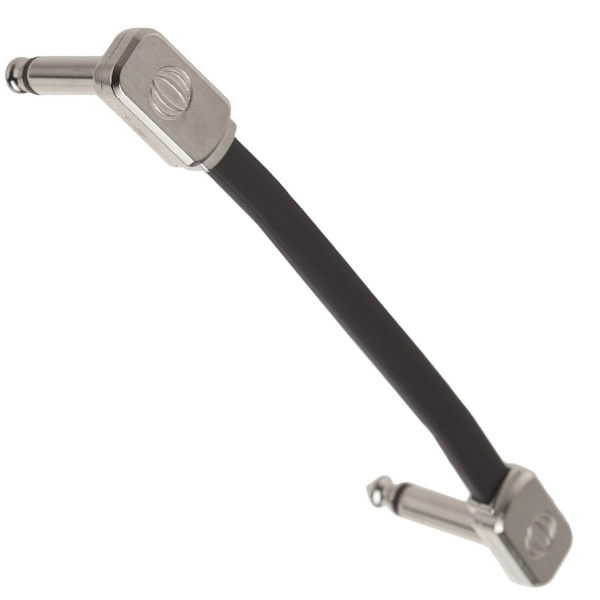
For me, the Ernie Ball Flat Ribbon provides the best combination of low-profile connectors, flexible cable, length options, and value for money, making it my favorite patch cable out of all the ones I tested for this guide.
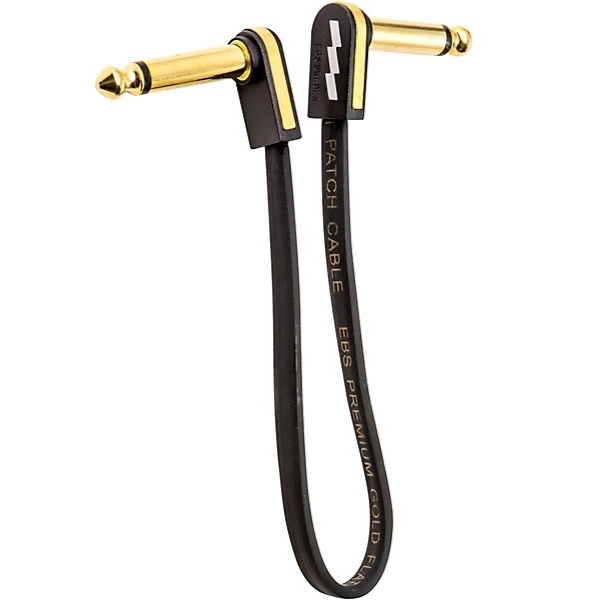
If you're looking to build a busy pedalboard and need the maximum from your real estate, the EBS Premium Gold Flat Patch cable features extremely slim connectors, flexible cable, and a variety of lengths - perfect for putting together your dream 'board.
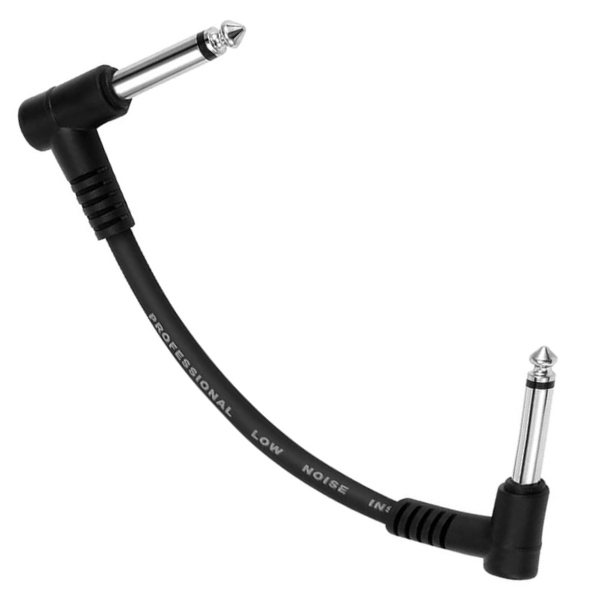
If you need a good quality patch cable that doesn't cost the earth, have a look at the Donner Patch Cable. It's really robustly built, and you can get six for around the $20 mark, which makes them superb value for money.
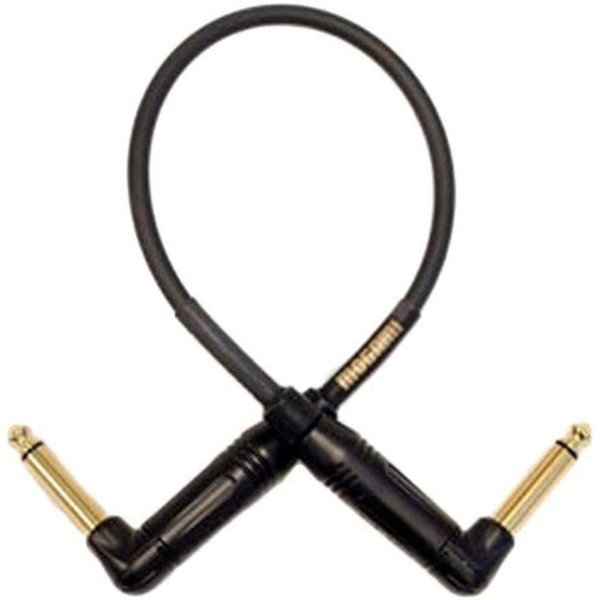
If you want the best build quality and don't mind forking out for it, the Mogami Gold patch cable is an incredibly robust option that is very unlikely to fail you. It's not cheap though, so it will add up quickly on a full build.
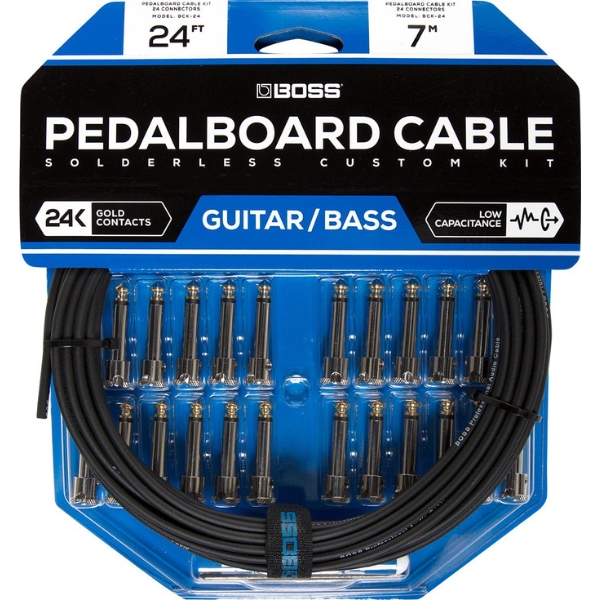
You might think that custom pedalboards are an expensive and time-consuming option. They're definitely the latter, but with the Boss BCK-24 Solderless Pedalboard Cable Kit, you can have a perfectly measured 'board for a lot less than you might think.
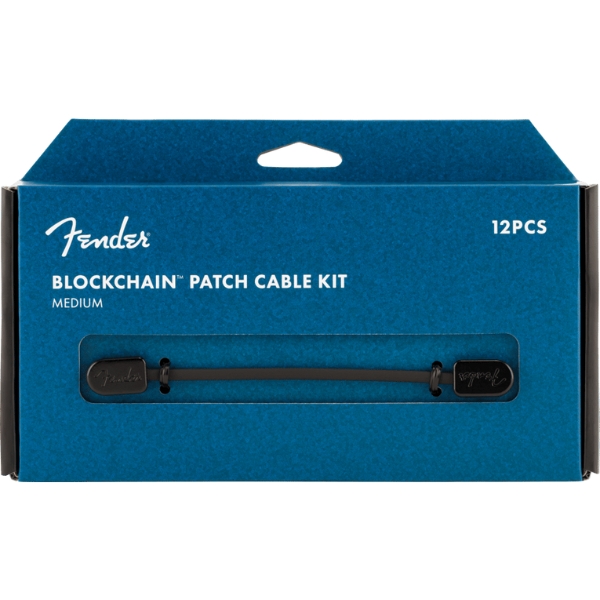
If you want an all-in-one solution with a variety of lengths, the Fender Blockchain Medium cable kit would be my choice. It's got an excellent variety inside with 12 patch cables in varying lengths, making it excellent value for money.
Best overall
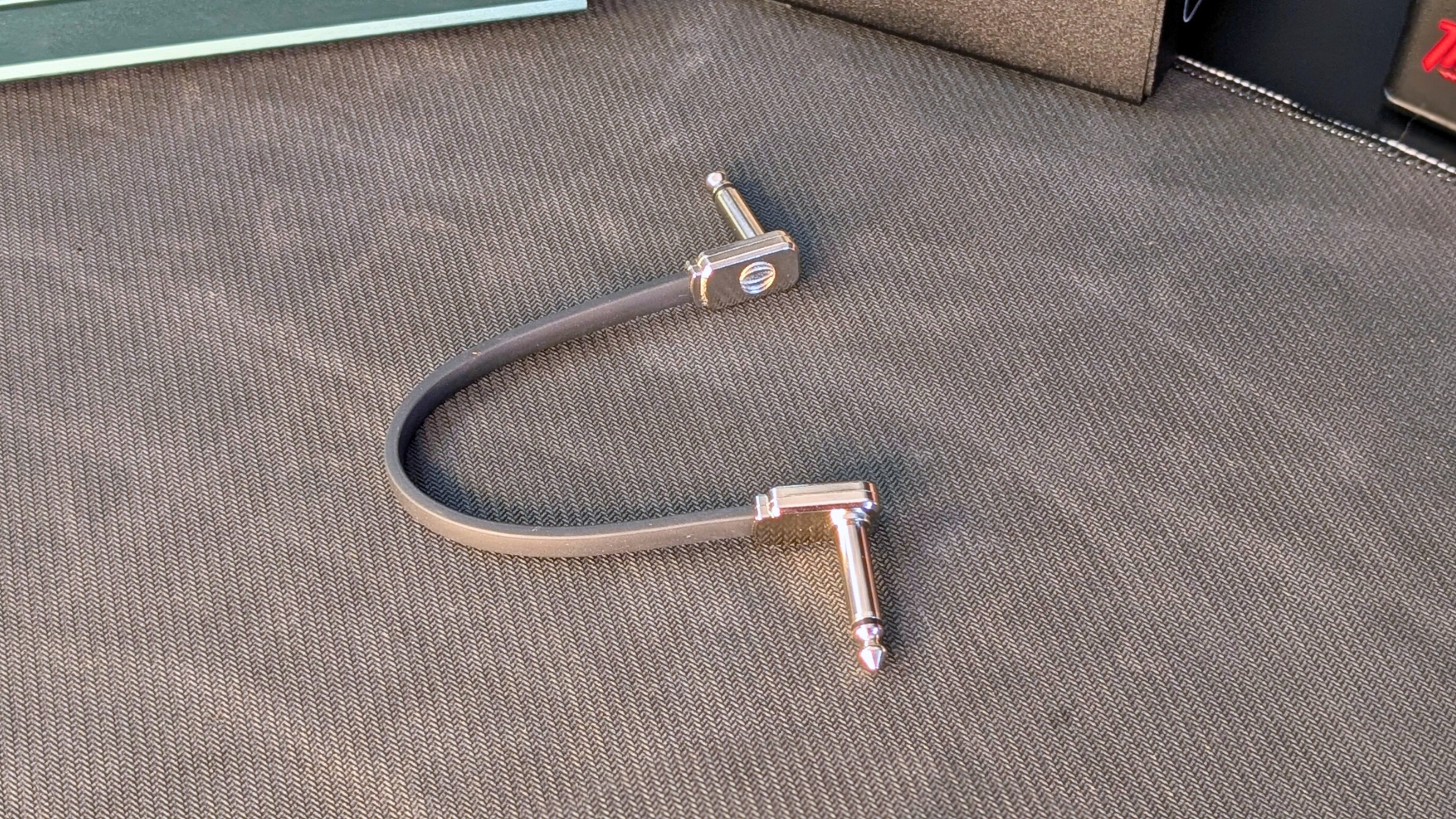
1. Ernie Ball Flat Ribbon
Our expert review:
Specifications
Reasons to buy
Reasons to avoid
🔌The Ernie Ball Flat Ribbon cable will suit the vast majority of guitarists thanks to its all-around performance, excellent durability, and reasonable price point.
✅ Buy if you want the best overall patch cable: The Ernie Ball Flat Ribbon balances build quality with affordability, and is super flexible, making it perfect for building your next ‘board.
❌ Avoid if you’re on a super tight budget: These are great value, but there are even cheaper options out there if you want to spend a little less cash on your pedalboard.
Overview: The Ernie Ball Flat Ribbon patch cable ended up being my favorite cable from all ten that I tested for this guide. I had actually been using some on my ‘board prior to writing this guide, and the cable’s flexibility, robust connectors, and reasonable price point were why I ended up choosing them for the top spot.
Connectors: The all-metal construction of the Flat Ribbon patch cable feels extremely sturdy in the hand, and the rectangular design with rounded corners makes it easy to navigate into tight spaces in between pedals. They’re pretty much exactly the same size as similarly slim offerings from Fender and EBS, so no issues placing them next to one another when rigging up a pedal switcher or stereo guitar pedals.
Flexibility: I found the cable itself to be super flexible. It bends and twists any which you want it to, making it easy to work into the gaps between your pedals, or run underneath the ‘board when you get a longer length. It’s not quite as flexible as the EBS patch cable or the Boss solderless kit, but I like the extra feeling of robustness you get from the EB Flat Ribbons.
The cable jacket itself is made from PVC, and comes in a flat ‘ribbon’ shape, which further aids in getting your pedals as close together as possible, as the cable can run up against itself in a space-saving manner.
Options: With the EB Flats, you get lots of choice in terms of length, with four options running from 3” to 12”, which should cover the vast majority of players. They also go beyond other manufacturers in offering different colors, which is a nice touch if you like to color code your build. You can get them in orange, white, or traditional black.
They’re also available in multi-packs of 10 with varying lengths if you want to save some money buying in bulk. There’s no straight connector available with these patch cables, and although I don’t think many players would want that option, it’s something to think about if you have a particular need for your rig.
Verdict: The Ernie Ball Flat Ribbon patch cable is a clear winner for me. It nails the super durable build quality, features an ultra-flexible cable for twisting and turning, has a nice and compact connector that’s well put together, and is decent value for money. For the vast majority of guitar players, your search for the perfect patch cable ends here.
Test | Results | Score |
|---|---|---|
Connectors | Sturdy, all metal, and compact | ★★★★½ |
Flexibility | Not the most flexible, but easy to move around | ★★★★½ |
Options | Plenty of options, including additional colors | ★★★★★ |
Overall | Ideal for the vast majority of guitar players | ★★★★½ |
Best flat patch
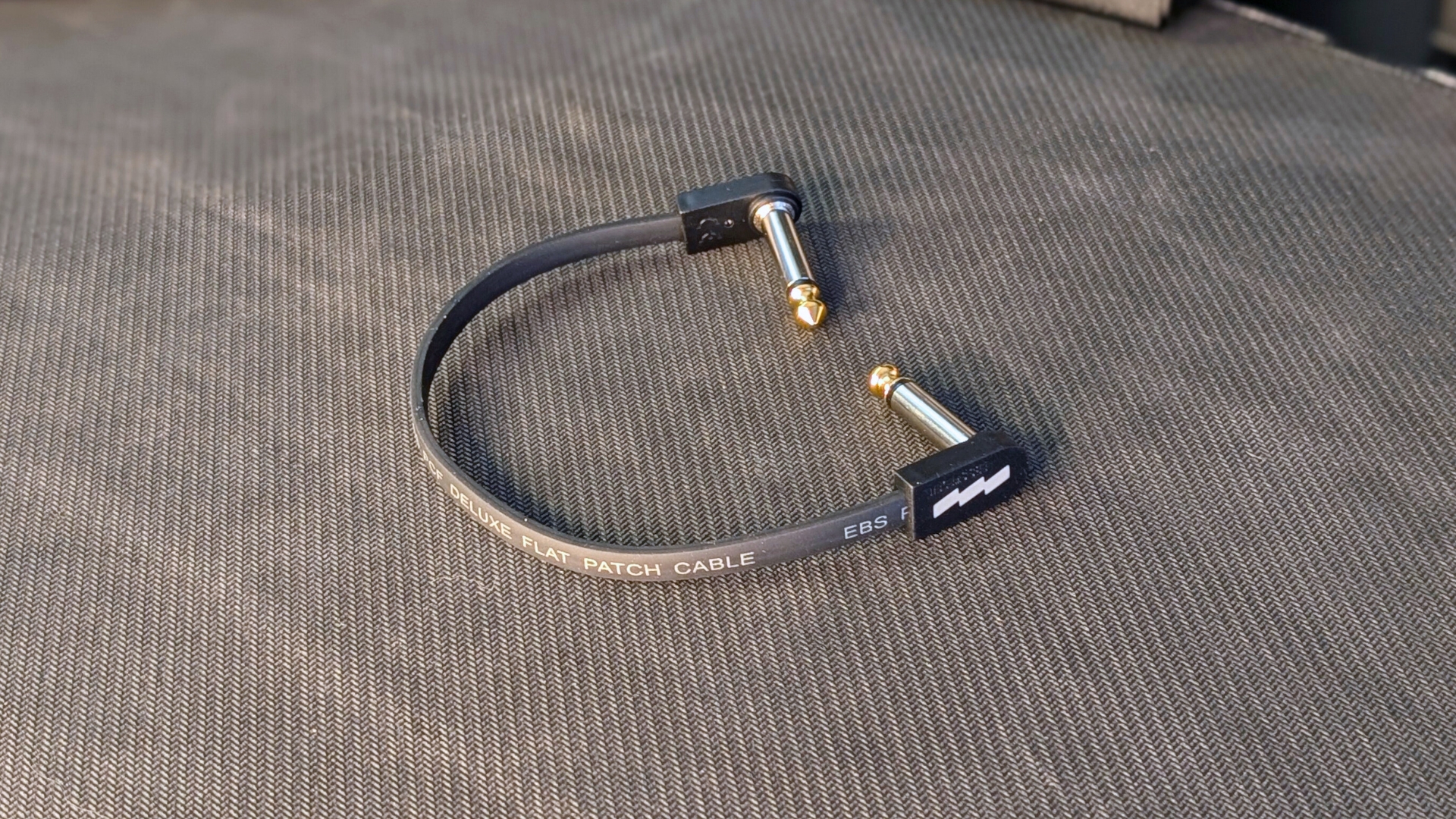
2. EBS Premium Gold Flat Patch
Our expert review:
Specifications
Reasons to buy
Reasons to avoid
🔌 For those who want to cram as many pedals on their pedalboard as possible, the EBS Flat Patch cable will allow you to get your pedals as close together as you can, thanks to the tiny connector heads and super flexible cabling.
✅ Buy if you want to save space on your pedalboard: The small connectors and flexible cable make EBS patch cables a great choice for those who want to get as many pedals as possible onto their pedalboard.
❌ Avoid if you’re not worried about space: The main reason to buy these cables is to save space, so if you’re not too fussed about that, you might not appreciate the tiny connector heads and ultra-flexible cable.
Overview: I’ve only recently discovered EBS cables, but they’ve really impressed me with their combination of space-saving features and excellent durability. The Swedish company offers an excellent range of lengths that’s comparable to the Ernie Ball patch cables, and out of all the cables I tested, they had the smallest connector and most flexible cabling.
Connectors: The connectors are 24-carat gold-plated, sandwiched between two hard bits of plastic. The shape and design looks very similar to that of the Fender and Ernie Ball patch cables I tested for this guide, but the other two have an all metal construction which wins out in the durability stakes. The EBS connectors are slimmer than any of the others, but we’re talking a difference of less than a centimeter here.
Flexibility: Of all the cables I tested, the EBS ones had the most flex. It features a flat ‘ribbon’ cable design similar to the Ernie Ball cable, but is thinner all around which is what allows it to flex so easily. It makes it great for manipulating into wild shapes to fit the particular intricacies of your pedalboard, whether you’re running underneath or bending it round a corner to get it to its destination.
On feel alone, the thinner PVC jacket doesn’t feel quite as rugged as some of the other cables here, but I didn’t find myself worrying about it in use. As someone with a lot of pedals on their ‘board and a pedal switcher, having that extra flexibility to route cables is definitely welcome, and despite repeated twisting, pulling, and general jiggling, the EBS cable held up admirably.
Options: Like the Ernie Ball patch cables, EBS features four different length options, but it only comes in black and gold. The four options mean plenty of scope for building a ‘board with these cables alone, and the inclusion of a long 22-inch cable is great for those extra-long runs that you sometimes have in more complex builds.
Verdict: It was a very close call between this cable and the Ernie Ball ones for the overall top spot. In the end, the EBS cable lost the battle due to the lack of color options, and the slightly less robust feeling of the connectors. Those two factors aside, it’s a brilliant cable and if you’re looking to maximize your pedalboard real estate, the obvious choice.
Test | Results | Score |
|---|---|---|
Connectors | Extremely slender, but very well made | ★★★★★ |
Flexibility | Extremely flexible, could be too much for some | ★★★★½ |
Options | Loads of length options but no colors | ★★★★½ |
Overall | Great if you want to save as much space as possible | ★★★★½ |
Best budget
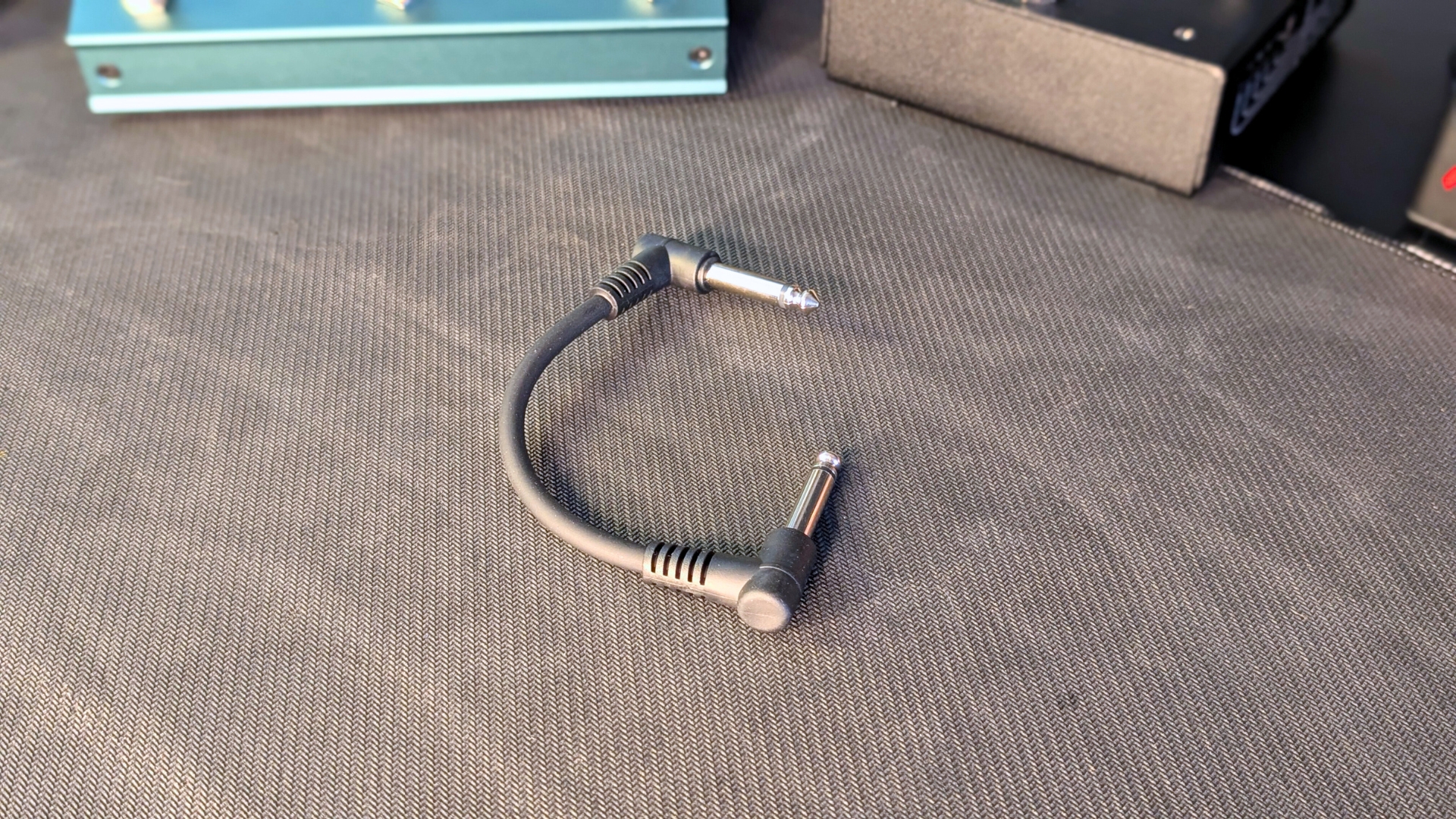
3. Donner Patch Cable
Our expert review:
Specifications
Reasons to buy
Reasons to avoid
🔌The Donner Patch Cable is for guitarists who mainly play at home, or those looking to save some cash and aren’t looking to save space with their pedalboard builds.
✅ Buy if you want a good quality but cheap patch cable: Coming in at around $20 (sometimes less) for six patch cables, these are an excellent choice for guitarists on a budget.
❌ Avoid if you need to save space: The plastic moulded connectors are quite big compared to others on this list, so avoid if you’re trying to squeeze as many pedals onto your ‘board as possible.
Overview: When I built my first ‘board I used cheap cables because I was a student with no money, so it can be done on a shoestring budget. Buying cheap cables can be a bit of a lottery though, so if you want my advice, go for the Donner Patch Cable if you want to save as much money as possible, but still get a quality cable.
Connectors: This cable features moulded plastic connectors, which are plenty robust, but don’t offer the space-saving qualities of the flat patch designs most of the other cables in this guide feature. This means you’ll have to sacrifice some pedalboard space in order to save cash, as you won’t be able to place them as close together as the designs from Ernie Ball, EBS, Fender, and Boss.
Flexibility: The cable is thicker and a lot stiffer than the others on this list, so you won’t have as much flexibility with this patch cable. It’s still fine for chaining pedals next to one another on a simple build, but if you’re really squeezing things together or need to twist it under the board for neatness, you might struggle.
The PVC jacket does feel very durable though, thanks to that thicker design, so it gives you a lot of reassurance that it will stand the test of time once you put it into your build. The plastic is thinner near where the cable joins the connector, which means there’s decent flexibility in maneuvering the cable.
Options: With the Donner Patch Cable, you’ve got two options in the form of a 6” cable and a 12” cable. For most guitarists, this will be a good mixture of lengths, but on more complex pedalboards with pedal switchers or additional footswitches, you might find it to be a bit of a limiting factor.
Verdict: I can’t knock the Donner Patch Cable considering the price, yes it has a few flaws in terms of space saving and the less flexible PVC jacket, but they’ll still work really well for the majority of home players. If you don’t want to spend loads on neatening up your pedalboard, these are an excellent value choice.
Test | Results | Score |
|---|---|---|
Connectors | Robust, but not as space saving as others | ★★★★☆ |
Flexibility | Others are more flexible, but not bad at all | ★★★★☆ |
Options | A couple of length options | ★★★★☆ |
Overall | Great if you're on a budget | ★★★★☆ |
Best premium
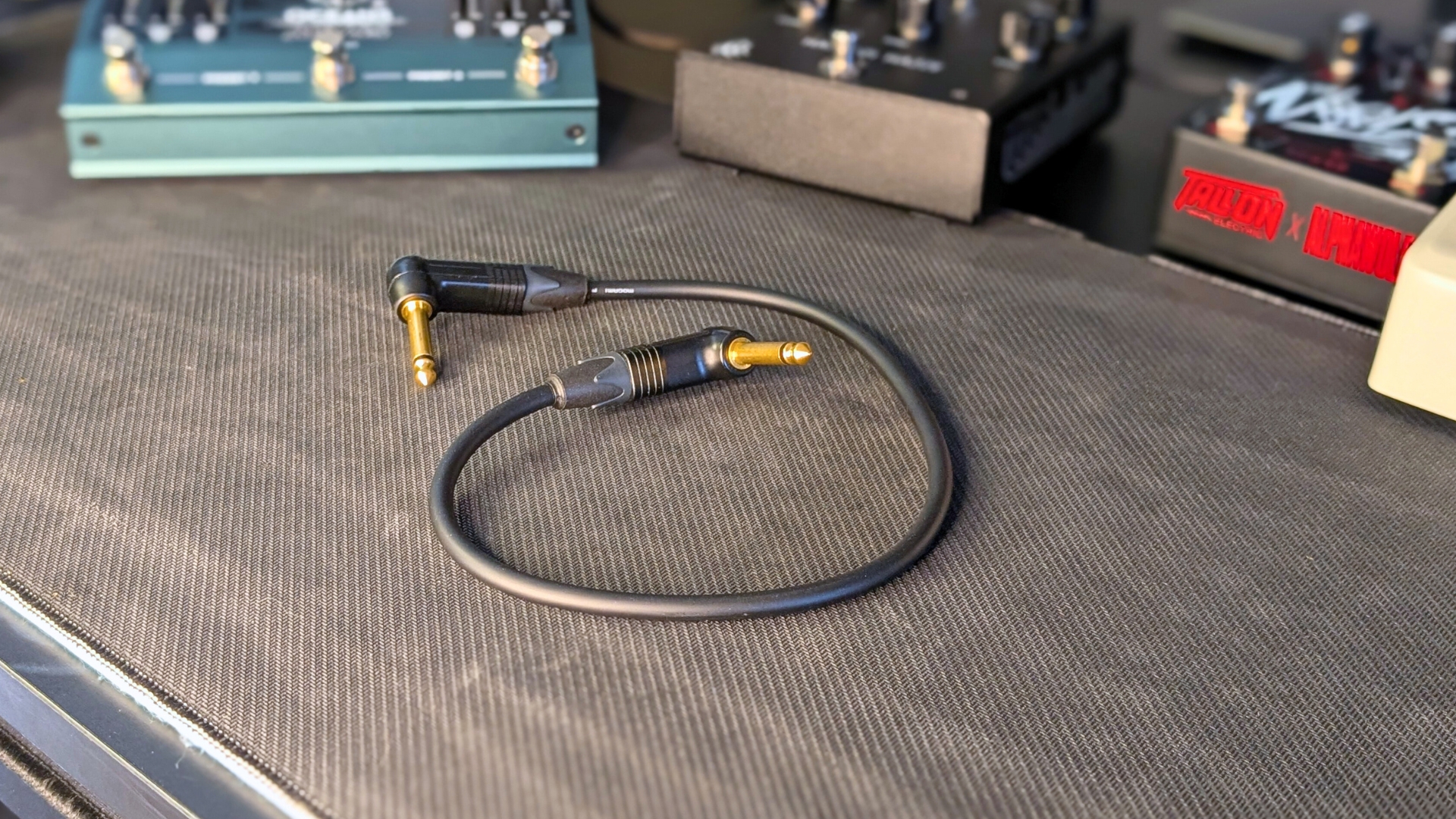
4. Mogami Gold Patch Cable
Our expert review:
Specifications
Reasons to buy
Reasons to avoid
🔌If you want the best of the best, then you have to go with Mogami. This patch lead uses the finest quality materials and best connectors, meaning it will absolutely stand the test of time – at a cost.
✅ Buy if you want a patch cable that will last for years: With it’s use of the best quality materials, Neutrik connectors, and excellent quality cable, this is undoubtedly one of the sturdiest and best quality patch cables available.
❌ Avoid if you have a big ‘board: At just shy of $40 a pop, using these cables will very quickly add up on bigger pedalboards.
Overview: Mogami is well known for being the industry standard cabling when it comes to recording studios, so it’s no surprise to find that their patch and guitar cables are similarly high quality. This is a cable for those who want to spare no expense building their pedalboard, so if you have a lot of pedals, be prepared to spend a lot of money on these.
Connectors: Out of all the patch cables I tested, the Neutrik connectors on this patch cable stood out a mile as the most durable. They’re hefty compared to the other patch cables, and I could see them surviving all-out nuclear war; they’re that robust. This does come at a price though, as they’re the largest out of all I tested too, meaning it’ll be difficult to get your pedals close together if you want to save space.
Flexibility: The Mogami cable is thicker than all of the others, and not all that flexible when it comes to bending it around. It will still go around corners and under your pedalboard, but you might find it going in directions you don’t want it to when you’re putting your ‘board together.
The cable itself is super robust though, and I’d have no qualms about it getting stood on, twisted, or bent in any direction, all while maintaining its integrity. Near the connector, it’s really solidly applied, with a plastic/rubber sheathing that prevents it from bending near that most delicate of spots.
Options: With four different lengths available, the Mogami patch cable is up there with the Ernie Ball and EBS cables when it comes to options for length. It’ll cover the vast majority of builds, although the connectors take up a lot of the 6” cable, which means it’s slightly less flexible than other options here.
Verdict: If you want the very best of the best in terms of build quality, then the Mogami Gold patch cable is the way to go. Its sensational quality connectors and rock-solid cable jacket mean there’s little chance of this cable failing you. It’s an expensive option though, so be prepared to spend if you want to kit out a full pedalboard with these bad boys.
Test | Results | Score |
|---|---|---|
Connectors | Neutrik connectors are ultra-robust, but not the smallest | ★★★★☆ |
Flexibility | Pretty thick and difficult to flex | ★★★★☆ |
Options | Lots of options for length | ★★★★½ |
Overall | Great if you don't need space saving but want reliability | ★★★★☆ |
Best solderless
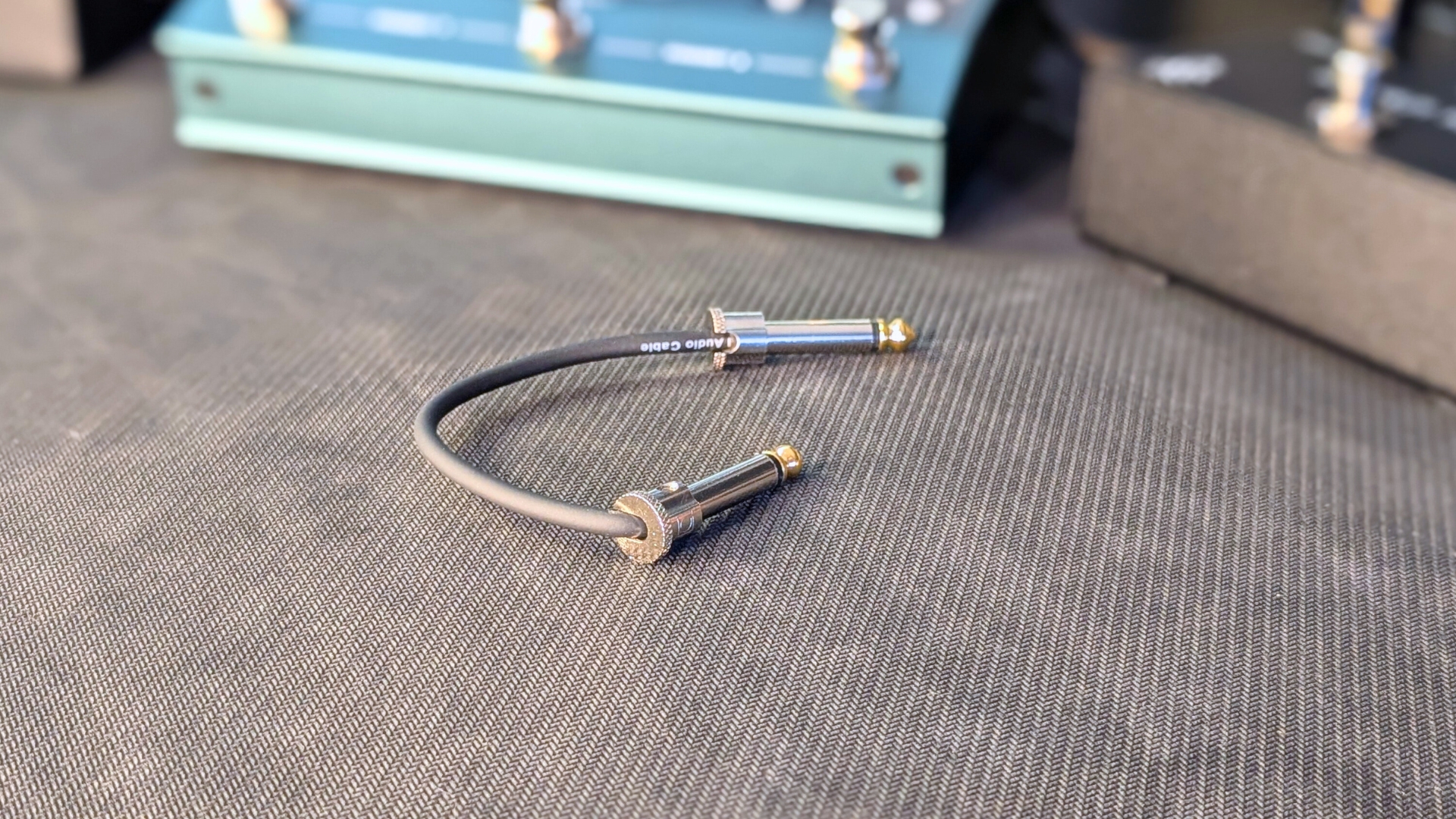
5. Boss BCK-24 Solderless Pedalboard Cable Kit
Our expert review:
Specifications
Reasons to buy
Reasons to avoid
🔌For guitarists who prioritise neatness and minimising cable length to preserve tone, this Boss solderless kit is a great way to get custom cable lengths without learning how to solder.
✅ Buy if you want to optimize your pedalboard: By allowing you to cut custom cable lengths, this kit lets you spec out your cable to the exact lengths you need.
❌ Avoid if you want to set up quickly: It’ll take time to plan, measure, and cut the appropriate lengths with this cable, so this is one for the patient guitarists amongst us.
Overview: When I first got the grips with the Boss BCK-24 Solderless Pedalboard Cable Kit, I was a little intimidated by the idea of having to cut my own cable lengths. I needn’t have worried though, the hardest part was getting the metal staples out of the packaging to open it up! If you want to custom-spec the patch cable lengths for your pedalboard for a super neat build, this is a brilliant option.
Connectors: The connectors are the same as those used in all Boss cables, so that means 24-carat gold-plated plugs. You get 24 in total in this pack, enough to make 12 cables to whichever length you need. The connectors can be wired as right-angle or straight, which adds further versatility to their use, and they’re held in place by a small screw with a flat head on it, which can be easily affixed using the screwdriver Boss provides in the packaging. I did find myself wishing there was a notch for the right-angle option, though, as I found when I bent the cable, it still sticks out from the connector a bit.
Flexibility: The cable itself is super flexible, second only to the EBS cables I tested in terms of malleability. You can twist and bend it into any shape you like, which makes it very adaptable when you need to go around obstacles on your pedalboard or take the shortest possible route to the next pedal.
Unlike the EBS, Ernie Ball, and Fender designs, it’s a thin gauge with a round design, and when using my wire cutters, normally reserved for stripping guitar string ends, it cut super easily. I did notice that you need to be very clean with your cuts, however, because miscutting it slightly can result in the core sticking out a bit, which can make it tricky to get into the connector end.
Options: The Boss Solderless Pedalboard Kit comes in 6, 12, and 24 connector options, which also correspond to the length of cable you get in feet. In terms of options, it’s the most adaptable thanks to the ability to cut your own cable lengths. It also has a connector advantage over other,s thanks to the ability to wire it straight, whereas pretty much every other patch cable comes in angle-angle format only.
Verdict: It’s a popular choice for guitarists to buy cable, connectors, and then solder their own cable lengths for a pedalboard. It’s a lot of work though. The Boss BCK-24 Solderless Pedalboard Cable Kit does make it easier than doing the aforementioned, and it surprised me with the ease with which you can start putting custom lengths together. It still requires some planning and effort though, but if you’re willing to put that in, this is the best choice for optimizing your pedalboard.
Test | Results | Score |
|---|---|---|
Connectors | Well made, 24k gold plated | ★★★★½ |
Flexibility | Ultra flexible cable, cut to any length | ★★★★½ |
Options | Wire your 'board any way you like with these | ★★★★★ |
Overall | Great for those who want to take time perfecting their build | ★★★★½ |
Best cable kit
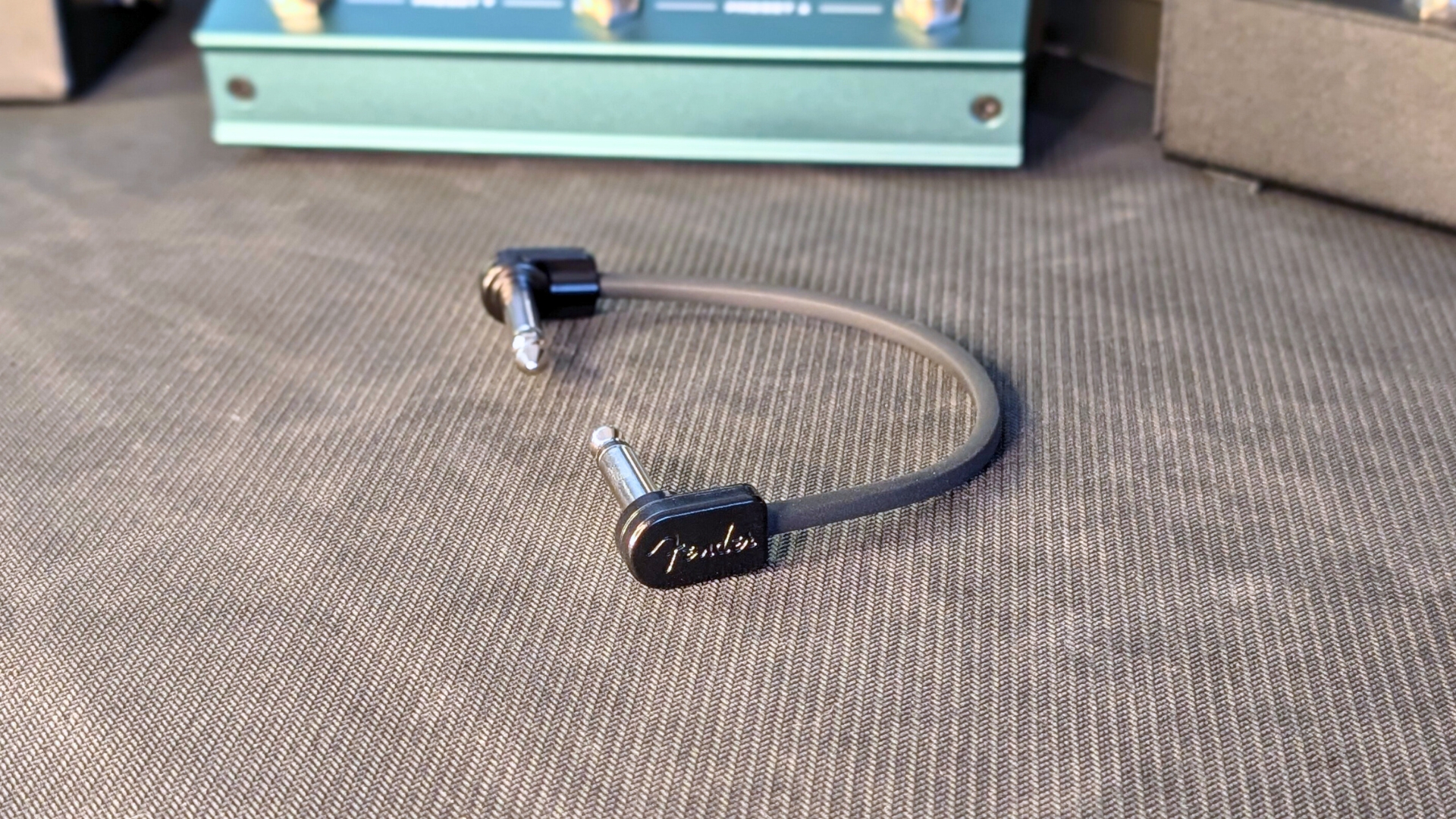
6. Fender Blockchain Medium
Our expert review:
Specifications
Reasons to buy
Reasons to avoid
🔌If you don’t want to mess about buying different cable lengths, then the Fender Blockchain cable kit is a great choice, providing a variety of options for wiring up your pedalboard.
✅ Buy if you need a variety of options: With a nice spread of different cable lengths, a cable kit is a great way to buy patch cables in bulk, saving you time and money.
❌ Avoid if you only have a few pedals: If you’re only wiring together a few pedals, then a cable kit is probably overkill.
Overview: The Fender Blockchain Medium cable kit is a great value way to buy a bunch of different cable lengths in one handy package. With 12 cables across 4 different lengths, the Medium pack should do for most guitarists, but you can buy a bigger one with 15 cables, or a smaller one with 9 if you prefer.
Connectors: The connectors are all metal, which gives a nice feeling of robustness to the cable. They feel super solid, and they’re similarly sized to those from Ernie Ball and EBS so will help those looking to save space. Some might not dig the fact that they’re nickel rather than gold-plated, but honestly, I couldn’t hear any difference between these and the other cables I tested.
Flexibility: The Fender Blockchain cables have a very small, squared cable that’s similar in size to the cable you get in the Boss solderless kit. It’s pretty flexible, and although it doesn’t flex quite as much as the EBS cable, it’s certainly malleable enough to cover most pedalboard needs.
The jacket feels super robust, and the square design with the small gauge means it doesn’t take up much room either. It feels super durable under load, and even pushing down onto it with something sharp doesn’t leave much of a mark.
Options: Depending on how you look at it, the Fender Blockchain kits offer a lot of flexibility, especially with the large pack that features a large, 36-inch cable. You are slightly limited in the fact that they can only be bought as multipacks, so there’s no way to get the exact lengths you need. That said, there should be plenty of options in each pack to satisfy most guitarists' needs.
Verdict: If you want an all-in-one solution, then the Fender Blockchain Medium cable kit is an excellent choice. The cables themselves are really high quality and durable, and there’s a plethora of lengths to choose from depending on which pack you go for. Buying in bulk can also save you money versus buying individual cables to specific lengths.
Test | Results | Score |
|---|---|---|
Connectors | Compact and very well made | ★★★★½ |
Flexibility | Square cable is nice and flexible | ★★★★½ |
Options | Each pack comes with a good variety | ★★★★½ |
Overall | A fantastic all-in-one solution | ★★★★½ |
Spec comparison
If you're struggling to decide between any of my top picks, this specs table provides a quick and easy to read reference point, allowing you to compare the key specs of each patch cable in one place.
Model | Connectors | Connector options | Length options | Color options |
|---|---|---|---|---|
Ernie Ball Flat Ribbon | Metal | 1 | 4 | 3 |
EBS Premium Gold | Gold | 1 | 4 | 1 |
Donner Patch Cable | Metal | 1 | 2 | 1 |
Mogami Gold | Gold | 1 | 4 | 1 |
Boss BCK-24 | Gold | 3 | Custom | 1 |
Fender Blockchain | Nickel | 1 | 6 | 1 |
Also consider
For the vast majority of guitar players, the above patch cables should have you covered when it comes to building your next pedalboard. I do appreciate no two 'boards are the same though, so here are some more great options if you didn't find what you were looking for.
D’Addario Custom Series Flat Patch
Right angle – right angle | 6 length options
These D'Addario Flat Patch cables only just fell shy of making my top picks in this guide. They're excellent quality, reasonably priced, and available in a good variety of lengths. They also have an offset right angle configuration that could be useful for some guitarists.
★★★★½
WBC Patch Cables
Right angle – right angle | 14 length options
Manufactured using the same cabling as the industry standard Mogami cabling, Worlds Best Cables delivers top-quality cabling at a price much lower than some of the more premium patch cables available. As Mogami cables are made in Japan, you can rest assured you're getting a quality product. I love the Eminence 'Tiny' TS plugs, which make these patch cables great for stereo pedals or those using multi-switchers.
★★★★½
MXR 3PDCP06 Patch Cable
Right angle – right angle | 3 length options
These MXR patch cables are another decent choice that costs relatively little cash. You get oxygen-free copper wire, flexible PVC outer jackets, and ultra-low profile pancake-style connectors for cabling. They’re excellent value for money, but be wary of those pancake connectors though, because often they don’t leave enough space if you’ve got two jacks close to one another.
★★★★☆
Hosa Flat Patch Cable
Right angle – right angle | 3 length options
Although they sit at the budget end of the market, these patch cables from Hosa are low-noise, with oxygen-free copper conductors and spiral shielding. They come in a decent variety of lengths, and the connectors are nice and low profile so you can fit them close together on busier builds.
★★★★☆
Rockboard Flat Patch Cable
Right angle – right angle | 10 length options
With a whopping ten different length options, Rockboard Flat Patch Cables offer a huge amount of choice if you need an odd length for your pedalboard. This could be for one 'row' of a stepped board to another, or due to a weird-sized stompbox like a wah, whammy, or multi-effects pedal.
★★★★☆
Kirlin PSK Patch Cable
Right angle – right angle | 4 length options
Best known for their awesome woven guitar cables, these Kirlin PSK Patch Cables are decidedly less showy, but still do a great job. The connectors have traditional pancake-style heads, so you can squeeze all your pedals up nice and tight, just be careful with pedal switchers and stereo pedals as pancake connectors can be too big to get side by side with one another.
★★★★☆
D'Addario Classic Series Patch Cable
Right angle – right angle, straight – straight | 3 length options
I’ve owned a few of these D'Addario Classic Series patch cables ever since I made my first pedalboard when they were called Planet Waves, and they’re still going strong. Like D'Addario's guitar cable offerings, it's solidly built, and the stealth black aesthetic is to the point. They're shielded to reduce noise and are made in the USA.
★★★★☆
How to choose
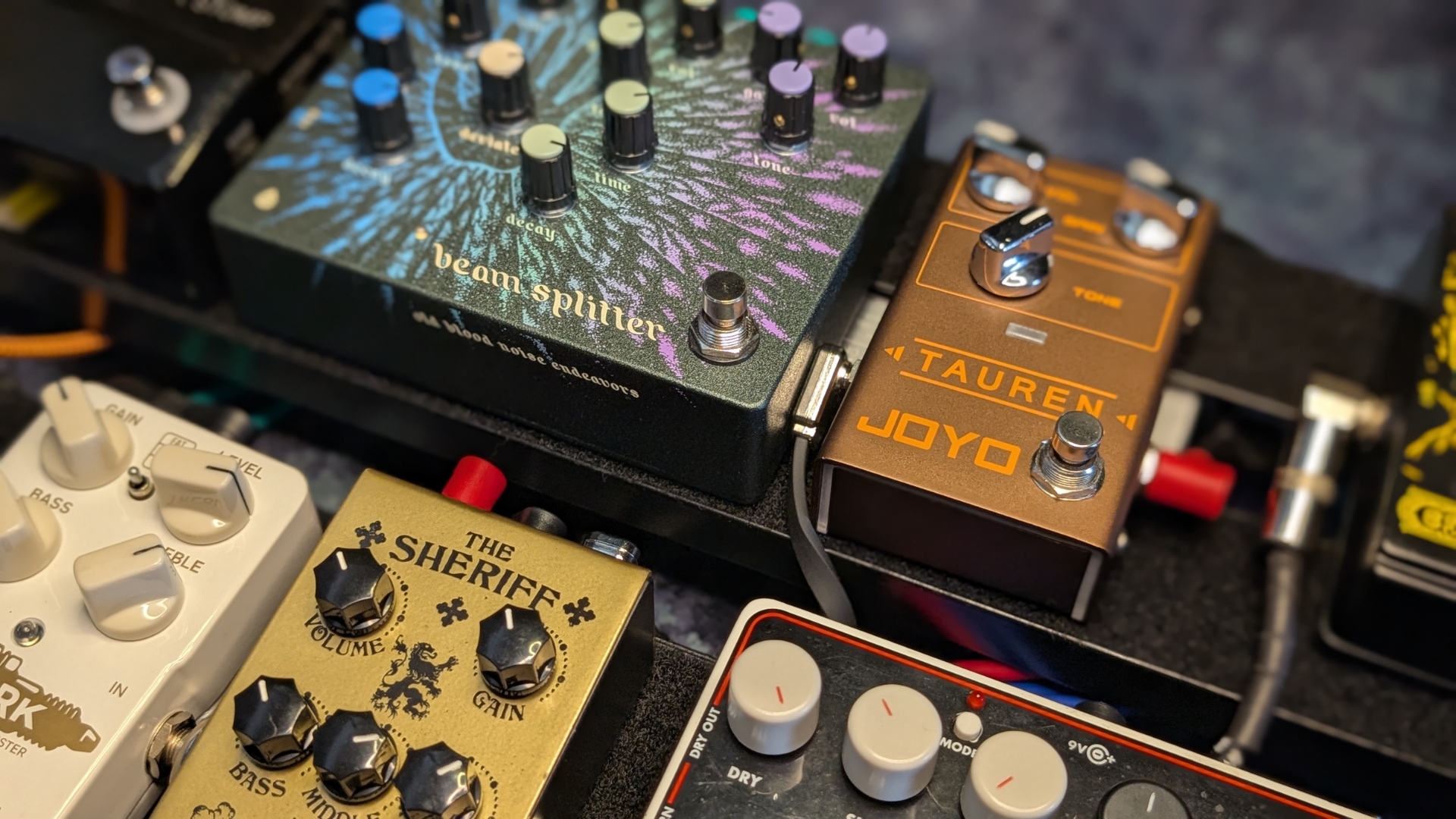
There are a lot of potential reasons you might need a patch cable, whether you’re just connecting a couple of pedals together or rigging up a monster pedalboard. If you’ve never bought patch cables before, or you just want some more knowledge before you go ahead and build your latest pedalboard, here are my top tips for choosing the right patch cables for the job.
1. Plan your build
You can trust Guitar World
Seems obvious, but planning out what cable lengths you need beforehand is an absolute necessity. I’ve built a bunch of ‘boards in my time, and nearly all of them have resulted in shifting things around due to cable lengths, or in some cases, having to wait for new cables to arrive, as I didn’t have the requisite length.
So before you do anything, place your pedals on your pedalboard (or the floor if you’re not using a ‘board) and estimate what cable lengths you’re going to need. If you’re routing your cable beneath the pedalboard, then make sure to account for some extra length in order to ensure you have enough give to do it.
I always find it helpful to draw out the signal path by hand to make sure I know exactly where each pedal is going to go, and where the jacks are. As some might have side jacks and some top jacks, you’re almost certain to need a variety of cable lengths when building a pedalboard.
2. Connectors
It’s also very important to pay attention to the connectors on your patch cables, particularly if you’re mixing and matching cable types and brands. Each patch cable tends to have an ever so slightly different dimension, which means in some instances they won’t always fit side by side where two jacks are close to one another.
If you’re using stereo pedals, expression inputs, or a pedal switcher, it’s important to note the size and shape of the connectors you’re using so you can be sure they fit next to each other. Again, it’s happened to me before where I only had two different patch cables left, but ended up not being able to get them to squeeze in next to each other.
3. Gigging
Playing at home and playing on the road will subject your patch cables to very different levels of stress. If your ‘board mostly stays at home, then you won’t need to worry so much about color coding or marking your cables in some way. To be honest, if you’re not fussed about looks, you might not want to route cables underneath your pedalboard either, as it will let you swap pedal order more quickly.
If you’re gigging, then you’ll need to think harder about your cable choice. It might be that you need to change something while you’re out on the road, or as sometimes happens on stage when something fails you. This is natural as gigging puts more strain on your cables. You might want to buy colored cables in order to differentiate runs to a pedal switcher, or just label your cables so you know what’s what.
4. What’s your budget?
Buying patch cables can add up very quickly, particularly if you’re running a lot of pedals with a pedal switcher. You don’t want to skimp on quality, but you also can’t just spend above your budget. Here, you need to go back to your use case to determine the best course of action.
If you’re just playing at home, then in my experience, you can get away with cheaper cables. They’re not going to be stressed regularly, so the chances of failure are a lot less likely. If you’re playing live, then I would 100% recommend spending as much as you can on your cables. Take it from me, it’s a horrible feeling when a patch cable dies on stage.
FAQs
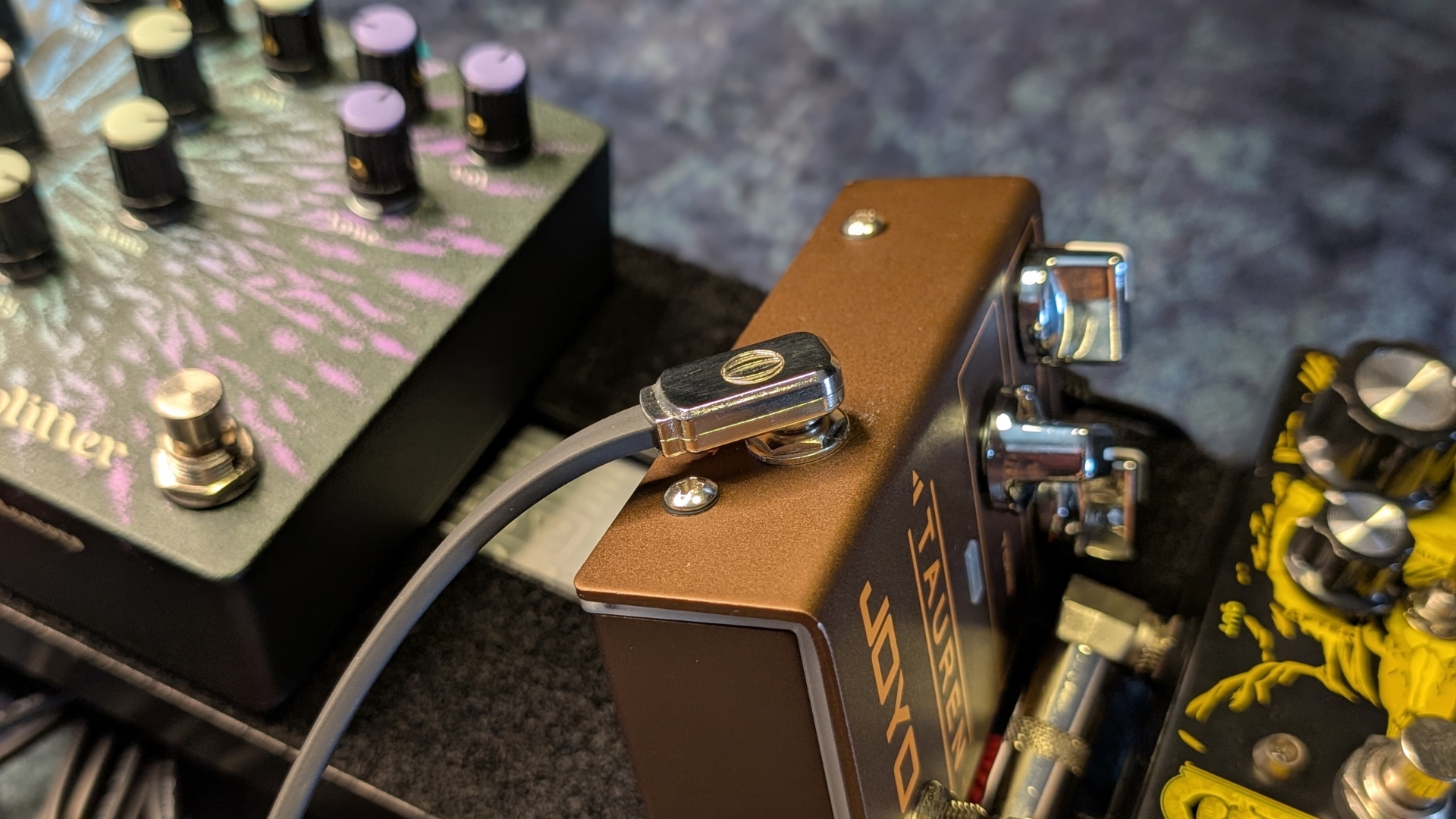
Do patch cables affect tone?
Yes, patch cables do affect your sound, but it all depends on how many you’re using and the quality of the cable. Poor shielding and high capacitance can result in noise entering your signal and a dulling of the treble frequencies. This is known as ‘tone suck’, and can be especially problematic with big pedalboards that need a lot of cables.
What’s the difference between a guitar cable and patch cable?
There’s no real difference between the two in terms of how they are constructed and operate. It’s just that when cables go below a certain length, they tend to be referred to as patch cables. Most patch cables do tend to have right-angle connectors though, as they’re usually used for connecting pedals together.
Are expensive patch cables worth it?
It all depends on what you’re doing with your pedalboard. If you’re just playing at home, any decent branded cable will do the job. However, if you’re planning on playing live, then I would definitely recommend investing in some of the best quality patch cables you can for your budget.
Should I use soldered or solderless patch cables?
In my experience, a soldered cable is more reliable than a solderless one. Solder holds surprisingly strongly, and with a good jacket around the cable, the likelihood of a failure is pretty small. Soldering is fiddly though, so if you need custom cable lengths and you’re not regularly gigging your pedalboard, a solderless kit can be super useful for getting your pedals arranged in a neat and tidy manner.
Can I make my own patch cables?
If you’re handy with a soldering iron, then yes, you can make your own patch cables. A lot of professional pedalboard builds will be done with custom-made patch cables to match the exact length required based on the signal path of the pedalboard. This is great for keeping things neat and ensuring you’re only using the bare minimum of patch cable.
Why do some patch cables stop working suddenly?
In my experience, 9 times out of 10, a patch cable dying is due to a faulty connector. I don’t think I’ve ever encountered a cable that broke at the midway point, but I’ve seen more than my fair share of cables that have come loose at the connector. This is the part that gets stressed the most in a patch cable’s life, so that’s why they tend to be the point of failure.
What are flat patch cables?
Flat patch cables are named for the head of the connector, which features a flat design that allows you to fit them very close together. This is great if you’re cramming in loads of pedals on a pedalboard, and if you’re using a pedal switcher, as it means you can get lots of cables into tight spaces.
Can bad patch cables give you noise and hum?
They absolutely can. Cheap patch cables like those ones you get on Amazon often have poor shielding, which gives you noise in your signal chain. Buy from a well-known manufacturer and you’ll save yourself some literal headaches later down the road.
Do I need different patch cables for an effects loop or pedal switcher?
No, you do not. I use an effects loop and a pedal switcher on my own rig, and the standard patch cables work just fine with it. The only time you might need a different type of cable is if you’re using the MIDI functionality on your pedal switcher, or a stereo (TRS) cable for using additional switches or stereo guitar pedals.
Key terms
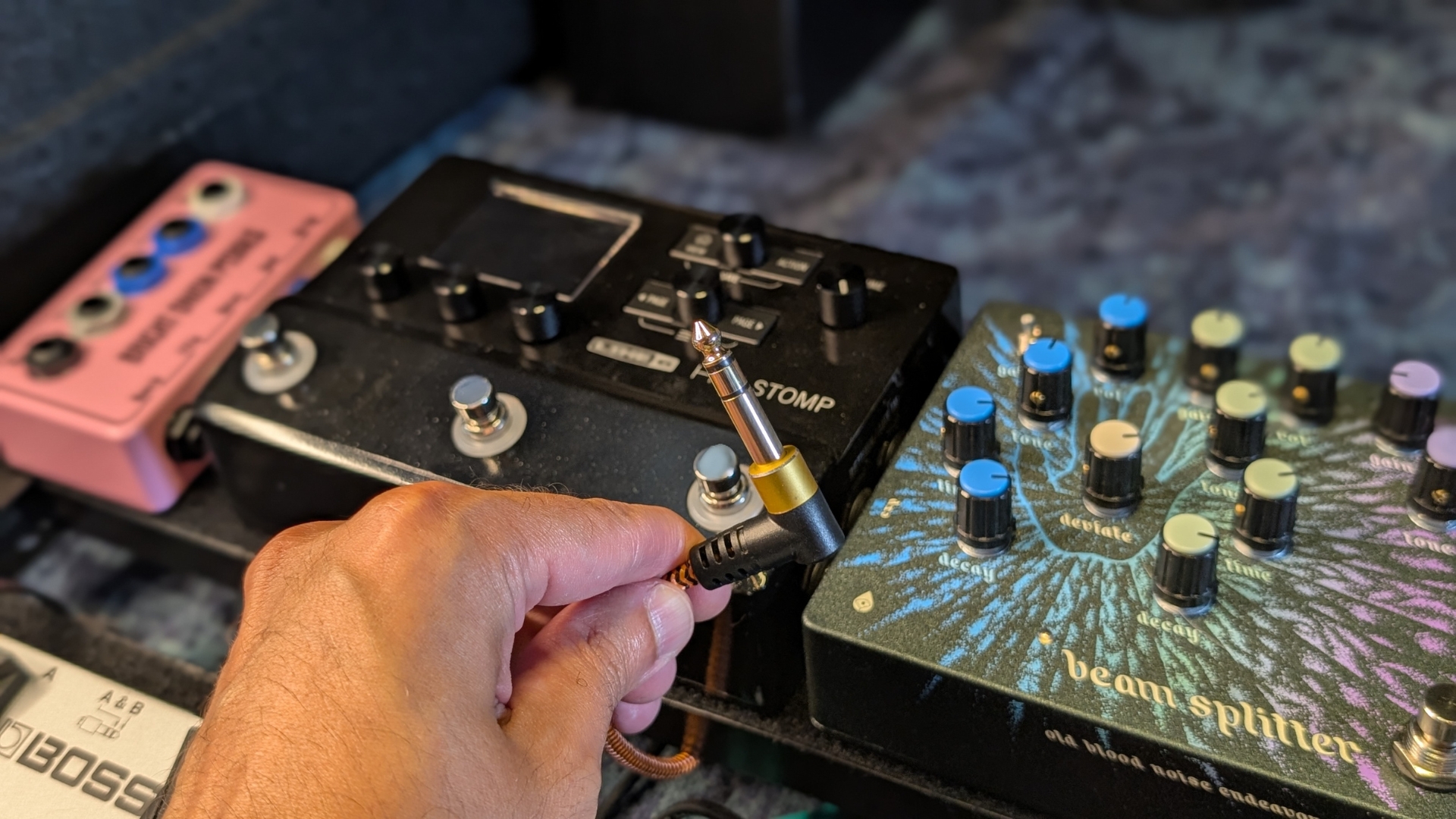
- Buffer: A circuit that counteracts tone loss across long cable lengths. Players often place a buffered pedal, like a Boss TU-3, at the front of their pedalboard to help with tone loss.
- Capacitance: The ability of a cable to store an electrical charge. A high capacitance can result in a loss of some treble frequencies
- Conductor: The wire in your guitar cable that carries your signal, typically made of copper.
- Daisy chain: A term to describe connecting multiple items along a single cable, usually referring to power cables on pedalboards.
- Flat patch: A slim, flat type of connector designed to save space on your pedalboard.
- Ground loop: A common cause of hum in guitar rigs, usually caused by power issues but can be as a result of poor quality patch cables.
- Insulation: The material that separates the conductor and shielding inside your cable.
- Noise floor: The base level of noise in your signal chain, which you’ll want to keep at a minimum with good-quality cables.
- Pancake plug: A flat, but round style of patch cable. Saves space putting pedals next to one another but can often be too wide to get two patch cables right next to each other.
- Real estate: A colloquial term to refer to how much space you have on your pedalboard.
- Right-angle connector: A patch cable connector that forms a right angle. Most patch cables use this format.
- Shielding: A conductive component of the cable that shields the signal from electromagnetic interference.
- Signal chain: The order in which your pedals are connected.
- Soldered connection: The method of using solder to secure the cable to the connector.
- Solderless connection: A solder free connection that clamps the wire into the connector.
- Tap test: A testing method whereby you tap the connector of the cable to determine if it is live.
- Tone suck: A colloquial term for the loss of tone across long cable runs, usually due to lack of buffer or poor quality cable.
- TRS cable: A type of cable typically used for stereo effects pedals, expression pedals, footswitches, and other accessories that need a stereo connector.
Why trust us

✅ A global audience of 3.8 million guitarists monthly
✅ 1,200+ reviews on GuitarWorld.com
✅ 30+ years of product testing at Guitar World
Guitar World boasts over 44 years of expertise and stands as the ultimate authority on all things related to guitars. The magazine and website feature expertly written gear round-ups and top-quality, authoritative reviews penned by a team of highly experienced industry professionals.
Guitar World's inaugural print issue hit the shelves in July 1980, and ever since, it has been captivating players and enthusiasts with engaging lessons, insightful interviews with the most prominent guitar heroes, and priceless buying advice for newbie players.
Furthermore, GuitarWorld.com continues this legacy online and serves as the hub of the world's foremost authorities on guitar playing. The site not only hosts content from Guitar World but also showcases articles from respected publications such as Guitarist, Total Guitar, Guitar Techniques, and Bass Player. With a reach extending to 3.8 million players each month, GuitarWorld.com is a go-to destination for guitar fanatics globally.
How I tested
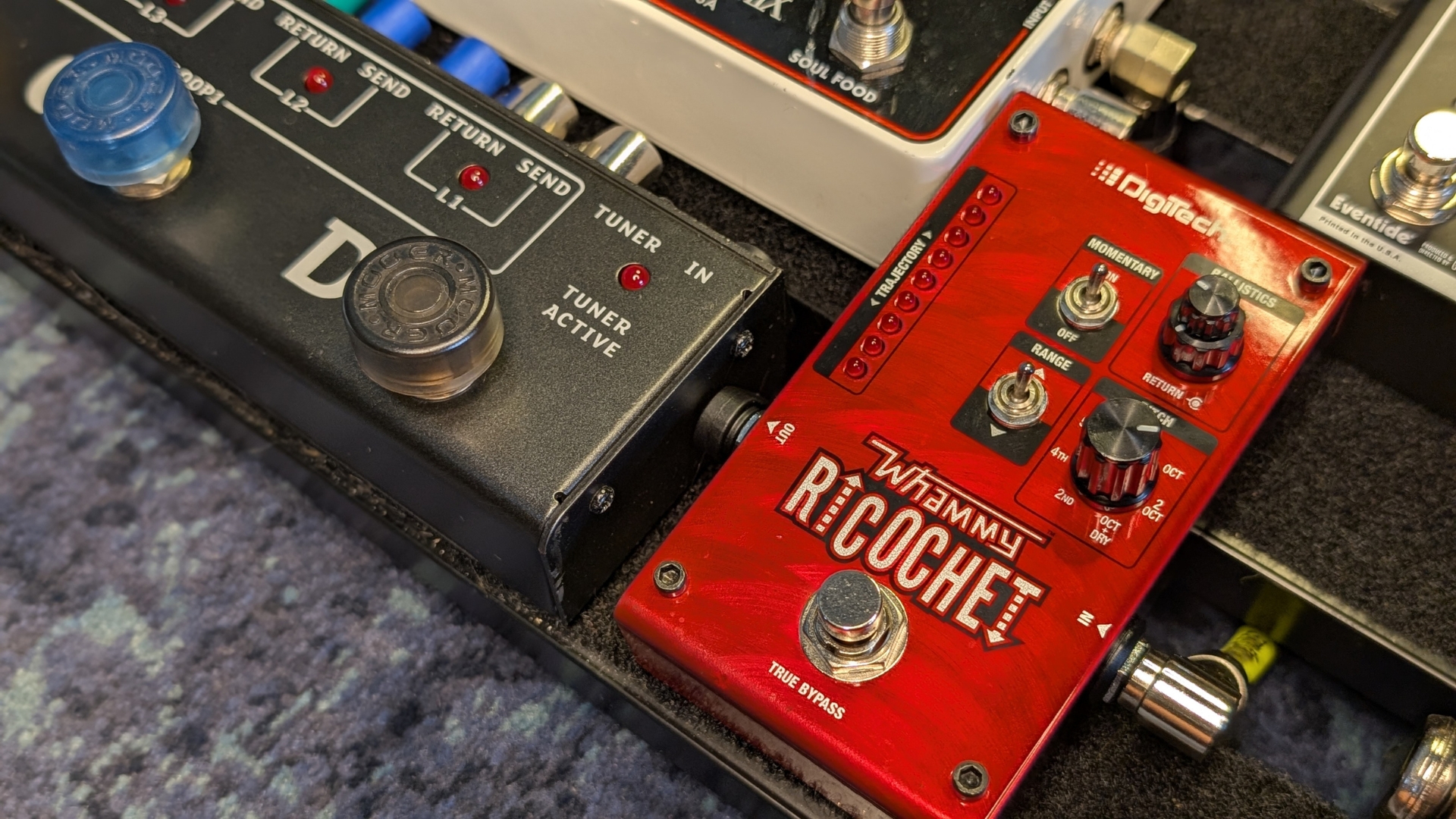
As I stated in the introduction of this guide, I don’t believe there’s much of a difference in terms of sounds when it comes to a big brand patch cable. Of course, I tested all the cables in this guide to listen to the differences in their tone, and to my ear, there was little difference between any of them.
To test these patch cables, then, I opted to just use them on my own pedalboard for a few weeks to determine how robust they are. That meant taking them to recording sessions and rehearsals, as well as using them at home just as any guitarist would. I took the following steps with each cable to determine its suitability for each use case.
Connector
The connector is the most likely point of failure on any cable, so I examined these in great detail to see how robustly they were built. I pulled, twisted, dropped, stood on them, and, of course, used them on my pedalboard to determine how close together they allowed me to get my pedals. Anything that I thought didn’t perform to satisfaction in these tests was discarded, while the best made it through to the guide.
Flexibility
Next, I looked at the cable jacket itself. Here I was after a mixture of flexibility and durability, as you need the cable to hold up to pressure, as well as be malleable enough to go underneath your pedalboard or around corners to other pedals. The balance between the two is a fine one, and as I have a complex pedalboard with a pedal switcher, I had the perfect playground to put them to the test.
Options
Finally, I had to consider the options available, as for most pedalboard builds, you will require a variety of lengths. Some of the manufacturers who sent me their patch cables for testing offered me the full range of their offering, whereas others just gave me their most popular length. Either way, I was able to look up the number of options available for each one, and I used this to judge the overall score of the patch cable in question.
I’ve been building pedalboards for over 20 years now, and I’m the proud owner of a pedalboard with 12 pedals and a pedal switcher, so I know a thing or two about what makes a great patch cable. All of my testing was carried out under my overarching experience, so I was able to use my own experience to judge which was the best for each use case.
Read more about our rating system, how we choose the gear we feature, and exactly how we test each product.
Latest updates
06/01/26: A new, more concise introduction has been added. A fresh header image has also been introduced. The top picks have been extended to six products to offer more choice. Each product entry has had its rating scorecard expanded, adding reasoning for each star rating.
All the latest guitar news, interviews, lessons, reviews, deals and more, direct to your inbox!

Matt is a Junior Deals Writer here at Guitar World. He regularly tests and reviews music gear with a focus on guitars, amps, pedals, modelers, and pretty much anything else guitar-related. Matt worked in music retail for 5 years at Dawsons Music and Northwest Guitars and has written for various music sites including MusicRadar, Guitar Player, Guitar.com, Ultimate Guitar, and Thomann’s t.blog. A regularly gigging guitarist with over 20 years of experience playing live and writing and recording in bands, he's performed everything from jazz to djent, gigging all over the country in more dingy venues than you can shake a drop-tuned guitar at. When not writing articles for Guitar World, you'll find him making a racket with northern noise punks Never Better.
